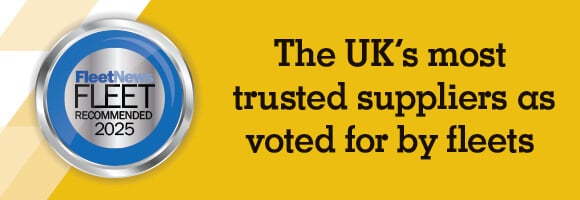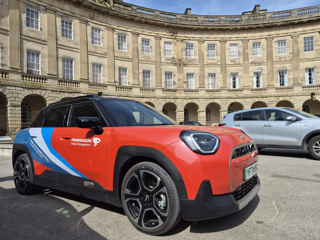Zenith’s risk fleet continues to grow, driven by corporate schemes, but the leasing company reports that profitability has been impacted by weakness in used car prices, in particular battery electric vehicles (BEVs).
Its annual financial results, for the year ending March 31, 2024, turnover was £788.4 million, up 16.1% year-on-year, from £679m the previous year.
Adjusted gross profit was £134.4m, down 8.5% year-on-year, from £147m.
Average termination profit per vehicle was down 40% year-on-year as a result of weak used vehicle prices both for BEV and internal combustion engine (ICE) vehicles.
Adjusted operating expenses of £72.4m were up 7.1% year-on-year, from £67.6m, driven primarily by inflation and investment in our people.
Adjusted EBITDA, meanwhile, was £62.1m – down 21.8% year-on-year, from £79.4m.
Impairment of £51.4m, it said, reflected the recent sustained fall in BEV used vehicle prices, and included a £16.2m reversal of the residual value (RV) reassessment on the previous financial year.
To mitigate losses, Zenith is targeting lease extensions where losses may be anticipated on the sale of individual vehicles, enabling additional lease rentals to be received during a period of lower depreciation.
Called Project Volt, the leasing company, which was ranked the seventh largest vehicle leasing company in last year’s FN50 according to its risk fleet size, is targetting 3,000 lease contracts which are due to end during the next financial year (FY25).
Corporate division fleet growth
The corporate division grew the total fleet year-on-year with a number of new customers, including a full vehicle leasing solution for Briggs Equipment UK’s fleet, supporting both its light commercial vehicles (LCV) and passenger vehicles through company car and salary sacrifice schemes.
The total fleet increased 1% year-on-year to 170,000 vehicles, while the overall funded fleet grew 2% year-on-year to 77,000 vehicles.
The funded fleet in Zenith’s corporate division grew 8%, driven by growth in our corporate schemes, particularly salary sacrifice.
As of March 31, the funded fleet across both our corporate and consumer divisions – some 60,000 vehicles – comprising of 41% (25,000) BEVs and 59% (35,000) ICE vehicles.
The corporate and consumer order bank continued to normalise, reaching 6,921 vehicles at the end of March and comprised of 44% (3,000) BEV and 56% (4,000) ICE vehicles.
Order lead times remained at 124 days, while deliveries were down 1% year-on-year, as reduced demand in the ZenAuto consumer division offset higher volumes in the corporate division. Termination volumes, meanwhile, were up 30% year-on-year.
The commercial division grew its managed fleet by 19.4% year-on-year, following several new contract wins and increased its mobile service unit fleet to provide more flexible support for customers.
Tim Buchan, Zenith’s CEO, said it had been an “exceptionally challenging year” for the automotive sector, with much uncertainty about the ban on ICE vehicles, including the five-year delay to the 2030 deadline.
He continued: “I’m proud of the way we are responding to the challenges, finding ways to mitigate the risks and impact on our business.
“Extending leases within our existing battery electric vehicle (BEV) fleet, launching new products to new markets and ensuring our fleet has a healthy balance of BEVs and ICE vehicles, all help to meet the needs of our customers while driving the success of our own business.
“I’d like to take this opportunity to thank the Zenith team for another successful year. They drive this business forward, ensuring we add value to everything we do. Thank you also to our customers and partners for their ongoing support and confidence in Zenith.”
To read Zenith's annual report, click here.

























Login to comment
Comments
No comments have been made yet.